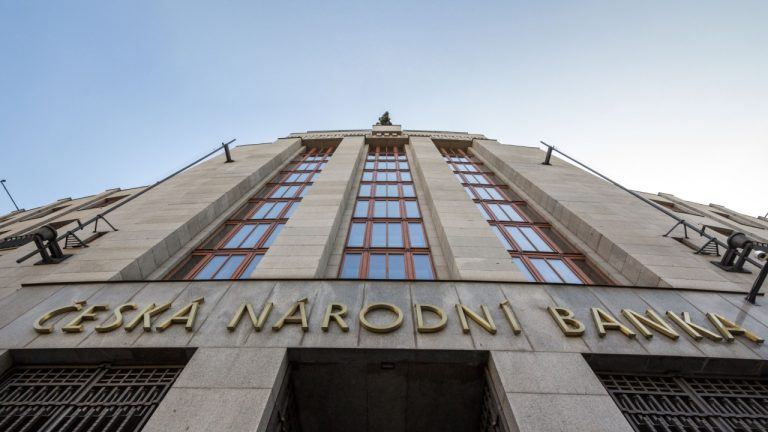
Blockchain in the EU healthcare report: 6 key takeaways

The EU Blockchain Observatory envisions distributed ledger technology delivering the Healthcare 4.0-era.
The EU Blockchain Observatory published its fifth report under the headline “Blockchain Applications in the Healthcare Sector.” The document highlights the importance of distributed ledger technology for the European healthcare sector, which faces a number of challenges on its route to the “Healthcare 4.0” revolution.
The 66-page document was announced on the EU Blockchain Observatory’s Twitter on April 11. Its authors take an optimistic perspective on the implementation of blockchain technology in healthcare, noting its compatibility with the core principles of “Healthcare 4.0”, such as interoperability, virtualization, decentralization, real-time capability, service orientation and modularity. Below are 7 key takeaways from the report.
- Old system, new challenges
As the healthcare industry becomes more knowledge-based, it gets more complex — the abundant variety of tools and methods also makes it prone to errors. Hence, having a flexible and digitized system of knowledge and data management is of crucial importance. Such a system should facilitate easy and user-friendly access for patients, whose interest in accessing their own health information grows rapidly.
And, of course, there is an old problem that didn’t go away — the data stored in the current healthcare systems are often siloed. As the report goes, a properly designed healthcare application on a distributed ledger can alleviate many of these concerns.
- Centralization, properly served
When talking about healthcare, some centralization is desired, but efficient centralization is hard to deliver. DLT thus becomes an almost inevitable solution. For example, as the report highlights, distributed ledgers could help monitor the use of medical equipment by healthcare facilities and identify deficiency or surplus of devices in different geographical locations, or to route patients to facilities that are best able to treat them.
- The fight against counterfeiting
Perhaps one of the most widely recognized advantages of blockchain regarding healthcare is its ability to fight counterfeiting — traditionally a very sensitive problem for the industry — by tracking the data of every single item in the supply chain. The report once again confirms this feature, highlighting the logistical benefits as well:
“Using blockchains as a ledger for recording provenance, vaccines and other life-saving drugs could be monitored and tracked from their origin to their current locations, thus reducing the misplacement or mislabelling of medicines and the risk of counterfeit.”
Amid epidemic outbursts like the one the humanity has experienced recently, this ability could become crucial both for national and global healthcare systems.
- To go global, go blockchain
Human health is a key concern on which the broadest global collaboration possible can be expected. Here again, comes the blockchain technology with its ability to streamline the exchange of information on a massive scale.
As with any other high-tech industry, artificial intelligence (AI) and machine learning are the future of healthcare. Once consolidated, information on medical use cases from a multitude of organizations can be used to train machine learning algorithms:
“Blockchain mitigates federated learning’s issues and helps achieve fairness, accountability of the processes, mitigating threats, and driving the collaboration between organizations, serving as a global model from locally trained models, allowing the exchange of models without transferring the dataset.”
- Data safety
The report questions an argument that blockchain isn’t well compatible with the necessary privacy of patients’ data because of the immutability of data recorded in distributed ledgers. According to the authors, the application of blockchain could be combined with an off-chain solution:
“To comply with GDPR, products can use blockchain on a layer above databases, so it is possible to monitor transactions on the data exchange and access information while all personal health data is stored off the blockchain.”
- An encouraging conclusion
Overall, the framers of the report encourage the European Commission to facilitate future legislation enabling innovation in health information technologies, including blockchain. They underline the DLT’s potential to be not just technological infrastructure, but a new way to govern data relationships and a conduit for economic development.
A possible threat to blockchain-powered innovation could come from the legislators who could stall the technology’s implementation by introducing overly conservative regulatory measures. Therefore, the report advocates for regular review of the regulations regarding their adequacy to the newest debates and developments around DLT:
“Oversight of decentralized blockchain technologies requires a fresh perspective and continual education of advances to determine how to integrate this technology into the current and future regulatory frameworks.”
The European Blockchain Observatory is a European Commission initiative designed to facilitate blockchain innovation and spur the conversation on distributed ledger technology among European stakeholders.
Go to Source
Author: David Attlee









